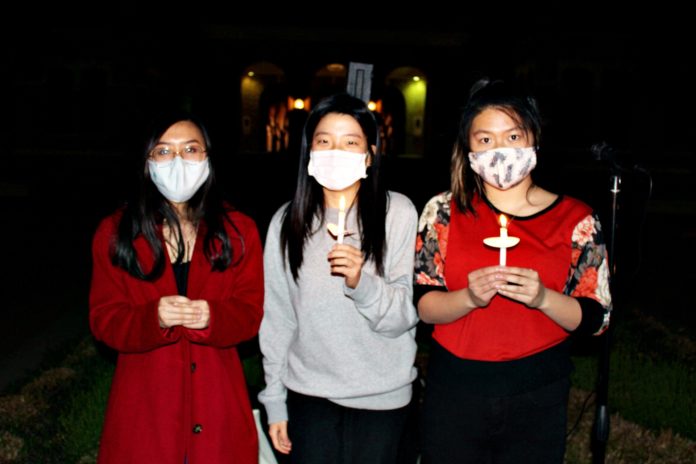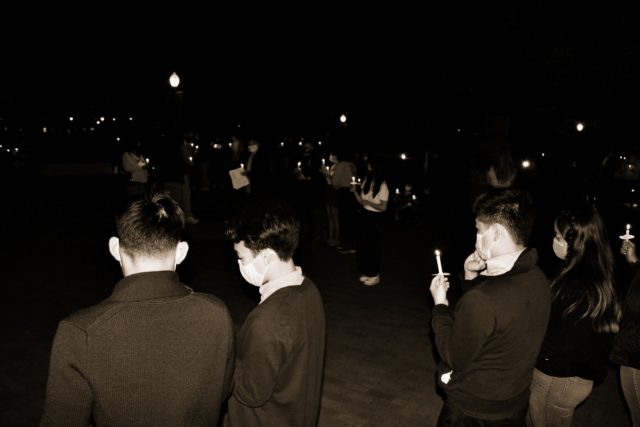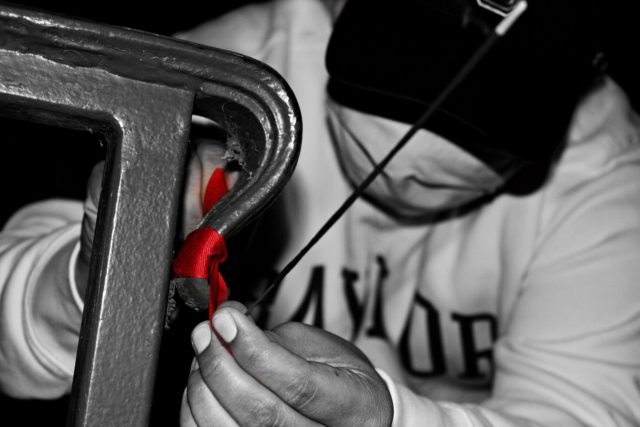
By Nicole Ma and Joyce Chang | Contributors
According to the Center for Study of Hate & Extremism, anti-Asian hate crimes have increased by 149% within the last year in the United States. Last Tuesday, on March 16 in Atlanta, eight people were shot dead at three massage parlors — six of the victims being Asian women.
In response, Cherokee County Sheriff’s Officer Capt. Jay Baker humanized the killer by noting, “yesterday was a really bad day for him, and this is what he did.” This became a tipping point for the Asian Americans Pacific Islanders (AAPI)community who have been suffering from the continual rise of anti-Asian hate crimes, especially attacks on our elderly within the last couple of months.
The need for community is more important than ever when the AAPI community is facing constant news of racist hate crimes in America. In a time when the model minority myth continues to marginalize the AAPI community and attempts to divide us from our Black brothers and sisters. Christine Phan, the Coalition of Asian Students intern of Multicultural Affairs, with the help of Sharon Son, president of Asian Ministry InterVarsity (AMIV), and Nicole Ma, core team leader of AMIV, urgently created a space for the Christian and non-Christian AAPI community at Baylor this past Friday evening at Burleson Quad to lament their pain and share their grievances.
“I had been feeling so much anger after seeing all these Asian elders being attacked and killed on the street, yet it seemed like only the AAPI community made a big enough deal of it,” sophomore Jonathan “Jojo” Nguyễn said.
“It’s crazy that as a senior, last Friday night was the first time I actually felt my voice and tears being represented on campus,” Sharon Son said. “Baylor’s initiative towards diversity should never feel nominal for minority students.”

Photo courtesy of Zakariyya Allen.
Our AAPI event intended to fill the gap for both Christians and non-Christians on campus, creating a physical space for students to gather and voice their pains.
We were joined by AAPI (and some allies of AAPI) faculty and staff who shared their painful experiences while also offering words of encouragement. One AAPI professor even noted that they waited 15 years for recognition of AAPI pains and to be given a space for a means of justice. Together, this night brought solidarity, community and hope for the future generations of AAPI students on campus.
“It’s important for the Asian community to stop being passive and step up so our voices are heard and stereotypes are disrupted,” sophomore Audrey La said.
“A huge part of that comes from the generations of Asian women who came before me; women taught to be timid and quiet, not stir up trouble and just turn the other cheek,” senior Camille Claudio said. “But now, I am tired of seeing Asian women silenced. We deserve to be seen and heard by the rest of this country. We deserve to see justice.”
The AAPI Prayer Service/Vigil is only the first step for the Baylor community in fighting discrimination. By creating a space for us, we are also hopeful for the next steps for implementing systemic change in the institution to fight against racism.
“I can’t help but feel disheartened by the fact that those who attended the event are not those who necessarily needed to hear what was said,” Jenn Nguyễn said. “I hope that Baylor takes a public stance condemning AAPI hate as well as start showing more support to the multicultural orgs on campus through publicizing our events.”
We concluded our event with the lighting of candles and incense to commemorate the victims of AAPI hate crimes. In addition, participants were asked to tie red ribbons — symbolizing strength, prosperity and new beginnings — on the railings of Burleson Quad.
“Those marginalized in the face of injustice will continue to be marginalized in the face of justice,” a prominent professor on campus said.

Photo courtesy of Zakariyya Allen.
Not only can we learn from the injustice and suffering of marginalized communities to amplify and help the voices of our Black brothers and sisters, but it continues to give room for healing and reconciliation of the hurts and harms done cross-culturally within the marginalized groups and communities to push for justice through systemic change in our broken systems together.
“Pain is pain, and to listen to one another is the most important part of being able to be in someone else’s shoes,” Sam Onilenla, an ally of the AAPI community, said.
As a hurting but empowered community, we call on Baylor to better recognize and provide spaces for the AAPI community. We want permanent solutions to target systemic racism on campus by implementing more sustainable resources. We ask for not temporary acknowledgements in diversity training that scratches the surface but for physical spaces and designated staff as resources on campus. We want justice, and we need it yesterday.
More links as resources and how you can help: https://anti-asianviolenceresources.carrd.co/
Correction: An earlier version of this story incorrectly specified Audrey La was a junior instead of a sophomore.






